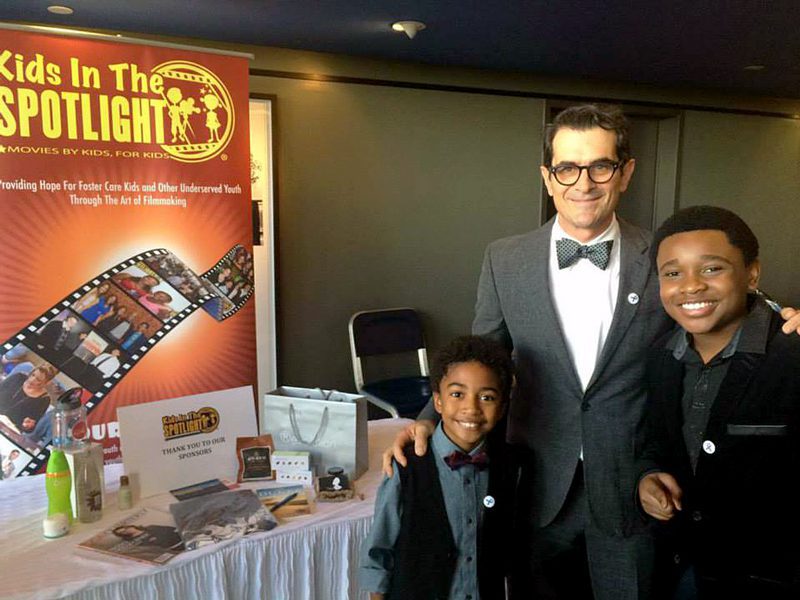Deregulating home-schooling institutions places the trust solely in parents, but is it what’s best for students?
Lessons in long division and planetary orbit came early for most of us, but it wasn’t until high school that Caleigh Royer formally learned any math or science.
In a public or private school, she’d follow a stiff regimen like Common Core. But Royer was home-schooled, and due to minimalistic regulations, her parents were bound to no such curriculum.
“It was all a joke,” Royer said. “I wasn’t home-schooled with a rigid plan or even a schedule, but rather, I was unschooled, in the literal sense. Besides my mom teaching me to read at about age 5, she really didn’t directly teach me anything else. I taught myself.”
Once viewed as a fledgling, outside-the-box approach to education, home-schooling is now the preferred method for nearly 1.8 million people and is the fastest growing form of education in the U.S.
It would stand to reason that this upsurge in enrollment would coincide with increasingly strict regulations on home-schooling institutions, but the statistics tell another story.
Four U.S. states have loosened requirements for home-schooling parents to file paperwork with local school districts since 2012, according to the Education Commission of the States, which tracks home-schooling policy trends.
In total 11 states do not require families to register with any school district or state agency that they are teaching their children at home, according to the Coalition for Responsible Home Education (CRHE), a nonprofit advocating for further regulation in home-schooling.
Moreover, 14 states do not specify any subjects that families must teach, and fewer than a fifth require that home-schooling parents have at least a high school diploma or GED.
Yet, efforts to counter the shift are gaining steam as concerned citizens and home-school alumni shortchanged by the system look to push for more accountability.
Royer’s “unschooling” offers a cautionary tale of the pitfalls of complete deregulation, but according to Rachel Coleman, CRHE director, such cases are far too common.
“Existing home-schooling organizations tend to speak to the needs and interests of home-schooling parents, and at times overlook the needs of home-school children,” Coleman said. “Sometimes those go hand in hand, but they’re not identical. There are some children who go uneducated. Many of us had positive experiences, but sometimes parents just need that accountability.”
According to Ryan Stollar, executive director of Homeschool Alumni Reaching Out, “There is a chasm—a deep and profound gap—between what good, well-meaning parents intend to do and how those intentions and actions are translated and experienced by children.”
Each state addresses home-schooling uniquely. Some, including New York and Massachusetts, require parents to send achievement test scores or professional evaluation, along with a series of other requirements. Others, such as Alaska, Texas and Illinois, don’t even require home-schooling parents to initiate contact with the state.
Pennsylvania, the most recent state to overturn requirements that families submit their children’s portfolios to district superintendents, also granted parents the right gained to issue their children high school diplomas without third-party approval.
Jessica Parnell is the founder of Pennsylvania-based Bridgeway Academy, a home-school program that provides each parent a curriculum tailored to the strengths of their child as well as access to an advisor to help hold them accountable. She said the law gives parents “a little more wiggle room,” but that the ideal formula is somewhere in between total regulation and deregulation.
“My concern with regulation is you take away the freedom to tailor to our kids, to keep things broad, and being able to explore their interests versus time regulation and so forth,” Parnell said. “The concern I have with complete deregulation is parents who are just finding an option to get their kids out of school without any accountability—that’s a danger as well. For people who home-school, it’s generally a commitment, a desire to do well. They’re pushing their kids toward excellence.”
Advocates of deregulation, including the Home School Legal Defense Association (HSLDA), cite studies of home-schooled children outperforming children in public school. Yet, according to Coleman, such studies may be inflated with positive results as researchers depend on voluntary participation.
National Home Education Research Institute research likewise indicates no discernible difference in the results of nationally standardized achievement tests between students in highly and lowly regulated states.
Milton Gaither is a professor of education at Messiah and author of “Homeschool: An American History.” The way many parents see it, he said, more regulation equals more busy work.
“Most home-schoolers don’t like regulations because pragmatically it’s a lot easier to home-school if you don’t have to worry all the time about complying with various regulations, filling out forms, keeping portfolios, taking standardized tests, and so on,” he said.
According to Gaither, one possible consequence of deregulation not related to education is an increase in the percentage of children who go unvaccinated. (CRHE reports half of the U.S. states hold no mandate for pre-kindergarten vaccinations of home-schooled children.)
Another is child abuse.
“If a child is pulled from school to be home-schooled after a concerning history of child abuse reports, there should be a red flag that goes up,” Coleman said. “They should either be prevented from home-schooling or be monitored via announced visit from social services to ensure that home-schooling has not been used to hide abuse.”
Currently, there is no such system in any state, according to CRHE. Further, only two states prevent convicted sex offenders from home-schooling.
“It doesn’t matter if you’ve had three reports of child abuse history in the last month; you can pull your child and that’s it,” Coleman said. “But if the case is closed because they don’t have enough evidence against you, there is no one that’s going to be checking up on those kids.”
Coleman noted a dearth of reliable data on home-schooled children who have slipped out of the radar, and very few for those concerned on their behalf. She said that while her home-school education was great, not everyone was so lucky.
Royer, now 24 and a mother herself, reflects on how more accountability in her education might have impacted her life.
“I think I would have been more well rounded in what I learned and maybe even have gone on to college,” she said. Royer and her husband have discussed home-schooling their son, but she said that for the time being, it’s not in the cards.
“I’m not equipped to teach my son the topics he should learn, and I can thank my own upbringing for that,” she said. “I think states need to require state testing or something that means home-schooled children are learning the same things at the same time as public-schooled kids.”













